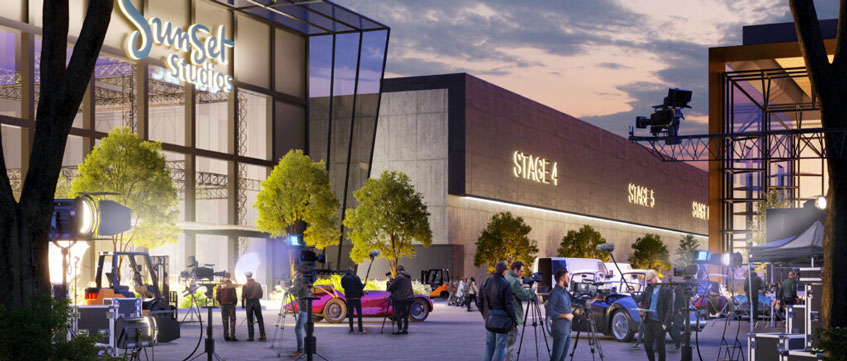TV studios stream into UK real estate
News
by
Katherine Medcalf
COMMENT UK real estate has another blockbuster client, with Amazon Prime Video announcing this month that it will follow rivals Netflix, Hulu and Disney+ in the take-up of long-lease film and television studio space.
The deal, which is one of a number of major studio leases in the UK over the past two years, suggests studio bosses have confidence that the country is and will continue to be one of the world’s top filming locations.
So what is driving this success? The global film and television industry has experienced rapid growth over the past three years, with factors including the rise of streaming platforms and a pandemic-driven demand for new content. But what sets the UK apart are the generous tax incentives and world-class production staff, driving inward investment of around £4.8bn last year.
COMMENT UK real estate has another blockbuster client, with Amazon Prime Video announcing this month that it will follow rivals Netflix, Hulu and Disney+ in the take-up of long-lease film and television studio space.
The deal, which is one of a number of major studio leases in the UK over the past two years, suggests studio bosses have confidence that the country is and will continue to be one of the world’s top filming locations.
So what is driving this success? The global film and television industry has experienced rapid growth over the past three years, with factors including the rise of streaming platforms and a pandemic-driven demand for new content. But what sets the UK apart are the generous tax incentives and world-class production staff, driving inward investment of around £4.8bn last year.
Growth of the industry has, of course, been a boon for owners of studio real estate. Demand so significantly outstrips supply that owners of existing properties are suddenly inundated with offers from some of the world’s largest insurers, private equity firms and pension funds, all seeking exposure to alternative sectors as the outlook for traditional sectors remains cool.
For some, this means occupying and expanding existing studio space, as Aviva did last year through its acquisition of Longcross Studios, but other big names are targeting capital at new sites.
Planning pitfalls
Because of the complex requirements of production teams, the development of new studio space (on land where it didn’t previously exist) can be particularly tricky.
First, sites need to be close to talent, infrastructure and varying landscapes, which more often than not means London and the Home Counties, creating complications due to planning issues and the availability of land.
Studios also often need to build fixed, long-term structures or temporary buildings, including those that would accommodate stunt functions such as fires and explosions, which would usually be explicitly forbidden in a standard lease or other occupational agreement.
Further, due to the amount of capital involved and tight timeframes involved in production, there is little room for slippage on site build-out.
Some of this headache can be offset by choosing sites that are within vacant industrial land, airfields and military bases, which are often very large and allow operators to use existing planning approvals to save time and capex (though minor planning and environmental issues will often still crop up).
However, these issues haven’t stopped investors from committing to major new schemes. Notable deals include Legal & General’s partnership with Sky to develop Sky Studios and Blackstone’s deal with Hudson Pacific (pictured).
Full stream ahead?
Will things continue this way forever? I think it’s unlikely – certainly at the current pace – considering there are reports that audiences are meeting peak saturation in their demand for new content, as well as the EU’s requirement that 30% of on-demand content will need to take place on the continent.
But there is still a great deal of opportunity for landlords in this sector. What we need is for both government and industry to be aligned on exactly what the sector needs to meet its unique requirements.
There’s not a great deal that can be done to limit opposition to new studios on greenbelt land, for example , which is perhaps the most pressing issue, but the sector could become even more attractive if the country sought to better utilise innovative construction methods such as modular design and to build to the highest environmental standards.
But whatever way you look at it, the UK is at the heart of a new golden age in TV and film production and we’re not going to lose our star power anytime soon.
Katherine Medcalf is a managing associate in Addleshaw Goddard’s real estate team











